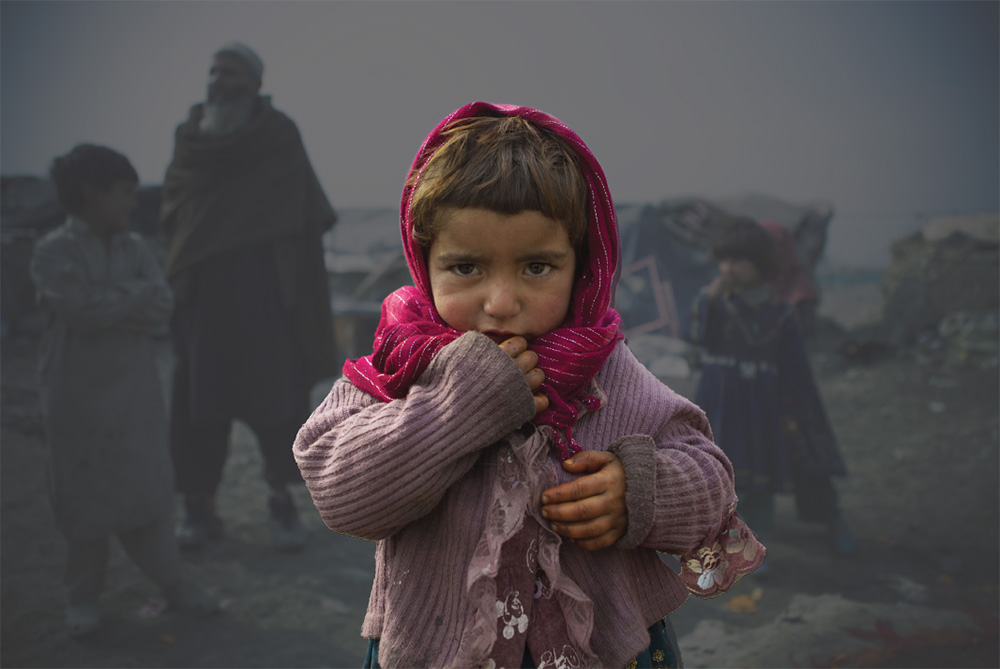
16 November 2023, Kabul, Afghanistan – About 1.3 million Afghans are expected to return to Afghanistan, voluntarily or by force, as a result of the Government of Pakistan’s recent Illegal Foreigners Repatriation Plan. This sudden and increased flux of returnees, along with other related factors, poses significant public health concerns. In particular, there is a risk of disease outbreaks and transmission of wild poliovirus at various points of entry.
Through a detailed response plan, WHO has identified a need for US$ 10 million to provide essential health services and ensure health care access for a targeted 700 000 Afghan returnees as they re-enter the country.
The elevated risk of communicable diseases and epidemics is made worse by displacement, temporary relocation in camps, substandard living conditions, existing health issues, malnutrition, physical and mental stress (especially among elderly people and pregnant women), insecurity, exposure to extreme weather, and an overall lack of access to health services. These factors can put a strain on already fragile health and socioeconomic systems, adversely affecting both returnees and host communities.
An insufficient supply of essential medicines further compounds the challenges faced by returnees with chronic medical conditions such as hypertension and diabetes.
Without timely assistance, there is the potential for an increase in morbidity and mortality rates owing to limited access to health services, especially for infectious diseases and other chronic conditions, essential maternal and child health services and emergency obstetrics care. Notably, there are gaps in the capacity of health providers to manage worsening emergency situations.
In response, WHO, as the lead agency for health within the United Nations system, is actively delivering life-saving interventions, basic health services, essential medicines and supplies. With a workforce of over 1250, WHO has the capability to respond to influxes across Afghanistan through its existing regional team and implementing partners, with scalability contingent on need and availability of funding.
“As we welcome back Afghans into the country, it is our collective obligation to public health to ensure that we have systems and resources in place to prevent, prepare for and respond to public health risks,” said Dr Luo Dapeng, WHO Representative in Afghanistan. “WHO is well placed to ensure that we can take care of everyone’s health needs, especially those of women, children, elderly people and other vulnerable populations.”
To address public health concerns at points of entry, WHO has positioned a team of health workers at each of the major border crossing areas in Afghanistan’s Nangarhar, Kandahar and Herat provinces. They will support health screening in line with International Health Regulations (2005) (IHR) requirements. WHO-supported hospitals at Spin Boldak, Afghanistan (30 beds), and at Torkham, Pakistan (20 beds), will be operational within 2 weeks.
WHO also plans to set up temporary isolation centres at the 3 major border crossings, as recommended by IHR (2005). Further, WHO will deploy primary health care services, immunization teams, surveillance support teams and ambulances. These will provide emergency basic health services and support for noncommunicable diseases, including diabetes and hypertension; vaccine-preventable diseases such as measles and polio; and mental health and psychosocial support.
WHO will also strengthen leadership and coordination at the national and regional levels, working with partners such as the International Organization for Migration to establish a working group on migrant health under the Health Cluster. This working group will provide technical guidance for the response to returnees, among other activities.
To prepare for the challenges ahead, WHO is poised to scale up the deployment of its expertise, resources and partnerships to deliver essential health services, mitigate the risk of disease outbreaks and ensure the well-being of both returnees and host communities.
WHO Afghanistan emergency situation reports
For more information, please contact:
Emergency appeal contacts
Mr Mohamed Kakay, WHO External Relations and Partnerships Team Lead
Email:
Dr Alaa AbouZeid, WHO Team Lead for Emergencies
Email:
Dr Jamshed Tanoli, Health Cluster Coordinator
Email:
Media contact
Ms Joy Rivaca Caminade, WHO Head of Communications
Email:


